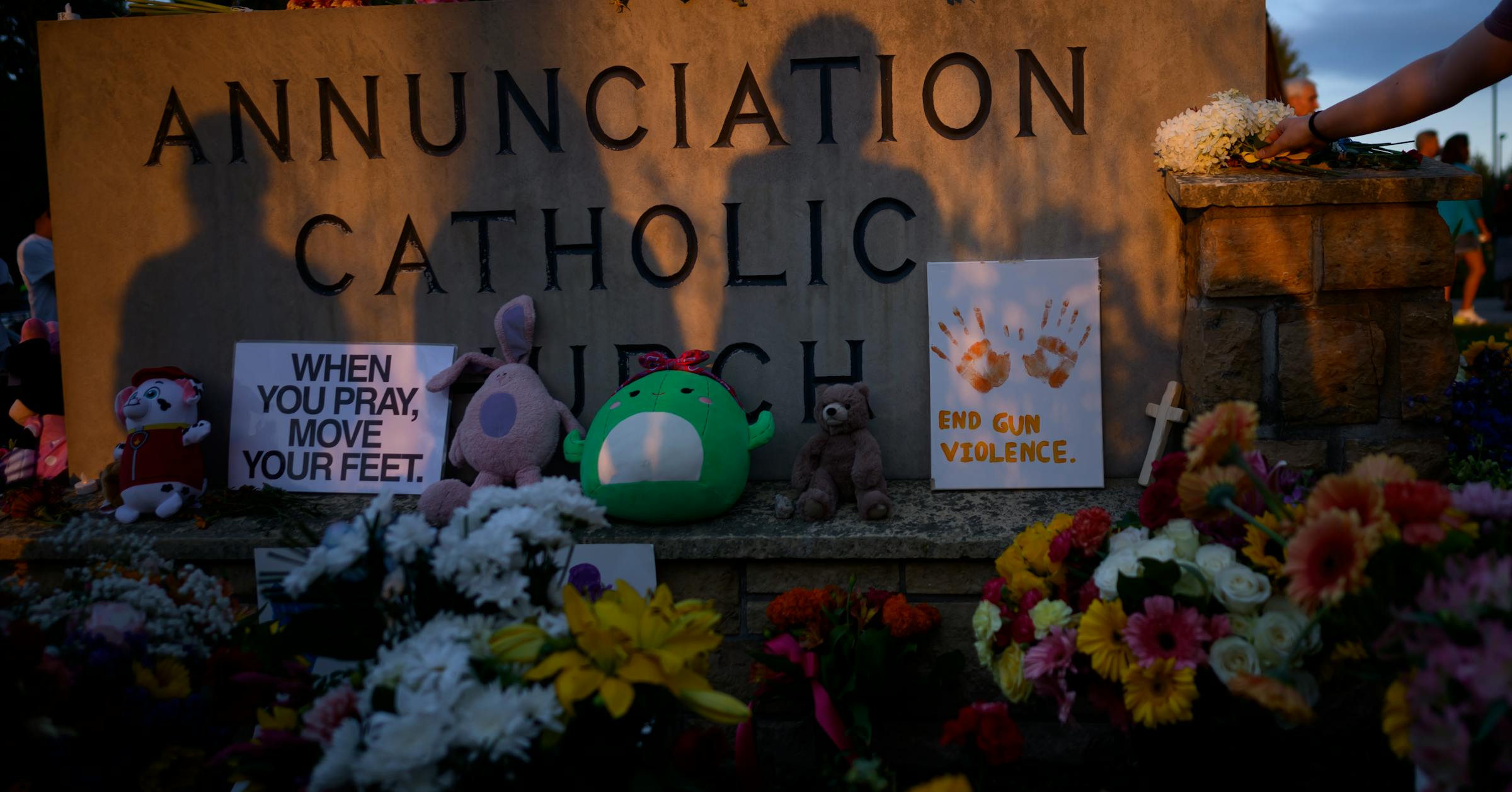Copyright Star Tribune

Out of everything I’ve written recently, nothing has garnered as much reader response as the column I wrote a few days after the mass shooting at Annunciation Catholic Church and School. The effects of the savage Aug. 27 attack on children in church continue to reverberate in workplaces around the Twin Cities. I suggested coworkers resist the urge to speak and instead listen to our friends and colleagues most directly affected. I took influence from some sermons of my late father, who was a United Church of Christ minister, and the writings of Kate Bowler recommended to me by the Rev. Matthew Fleming of St. Andrew Lutheran Church in Eden Prairie. Many readers appreciated that column in the moment. One, a retired hospital chaplain, wrote to me in an e-mail, “I hear quick desire to begin the healing process. I prefer to lament a little while.” The mass shooting plus major developments at two of the state’s biggest companies, UnitedHealth and Target, have meant there was no summer slowdown in news. The second-highest amount of reader feedback since my last reader roundup was for the column I wrote about Rick Kupchella’s TV documentary “A Precarious State” earlier this month. One of the people interviewed in the documentary, Carol Becker, wrote in an op-ed essay for The Minnesota Star Tribune this past weekend that several of my colleagues and I were overly critical of the production. She said the Star Tribune’s columns and news stories about the documentary showed its writers either lived in a bubble or were in denial about the problems the documentary described. I can confidently say no one at the Star Tribune is in denial about the problems Minnesotans face. We talk about them, and more importantly write about them, all the time. In the documentary, Kupchella said the city’s economic recovery hinged on solving its crime problem. That’s true, I said, but I felt like it missed this bigger point: Minnesota and Minneapolis would still have had growth problems if Minneapolis didn’t have the crime issues Kupchella focused on. The root cause of the growth challenge lies deeper, in choices that people, particularly those of growing affluence, have made over recent decades to marry less and have fewer children. In an email after reading the column, Joe Landsberger of St. Paul, who recently published a book on his city’s early history, raised the topics of race, immigration and acceptance as he discussed Minnesota’s slow growth. “The real cause of the slowdown is the documented vitriol targeting those ‘Minnesotans of color and new immigrants’ who have contributed so much to the common weal through the centuries, and in Minnesota,” he wrote, using a phrase from a part of the column where I noted the declining birth rate of white Minnesotans. “I say this as a historian and the product of Swedish, Czech, Luxembourgish and Bavarian immigrant farmer grandparents who made Minnesota their home. I say this as one who recognizes that future farm workers will be immigrants, and non-white,” Landsberger added. A few readers reacted to the documentary column by discussing the troubles of the Minneapolis Police Department, which I have never directly reported and know mainly from reading what I consider to be excellent coverage of the department by my Star Tribune colleagues. On a side note, TPT and other public television stations last week debuted a three-part documentary called “Paradox: Echoes of Reform & The Minneapolis Police.” Alex of Minneapolis, who asked me not to use his last name, pointed out that for all the talk of defunding the police in the city, MPD has been hiring as fast as it can to replace the hundreds of officers who left after the George Floyd murder in 2020. “The supposedly far-left City Council raised starting wages to among the highest in the state. What would Kupchella and his business backers do differently?” he asked. “I think I know the answer — they would lower standards and place quantity above quality. If that’s the case, then they should say that instead of hiding behind platitudes." Finally, as happens every time I write about economic growth in Minnesota, some readers wrote in to say growth causes more problems than it solves, which is the opposite of my point of view. Doug Norris of Champlin, observing that the effects of slow growth is a consistent theme for me, asked if I’d heard of a concept called the “steady state economy” put forth in books by Herman Daly and others.



